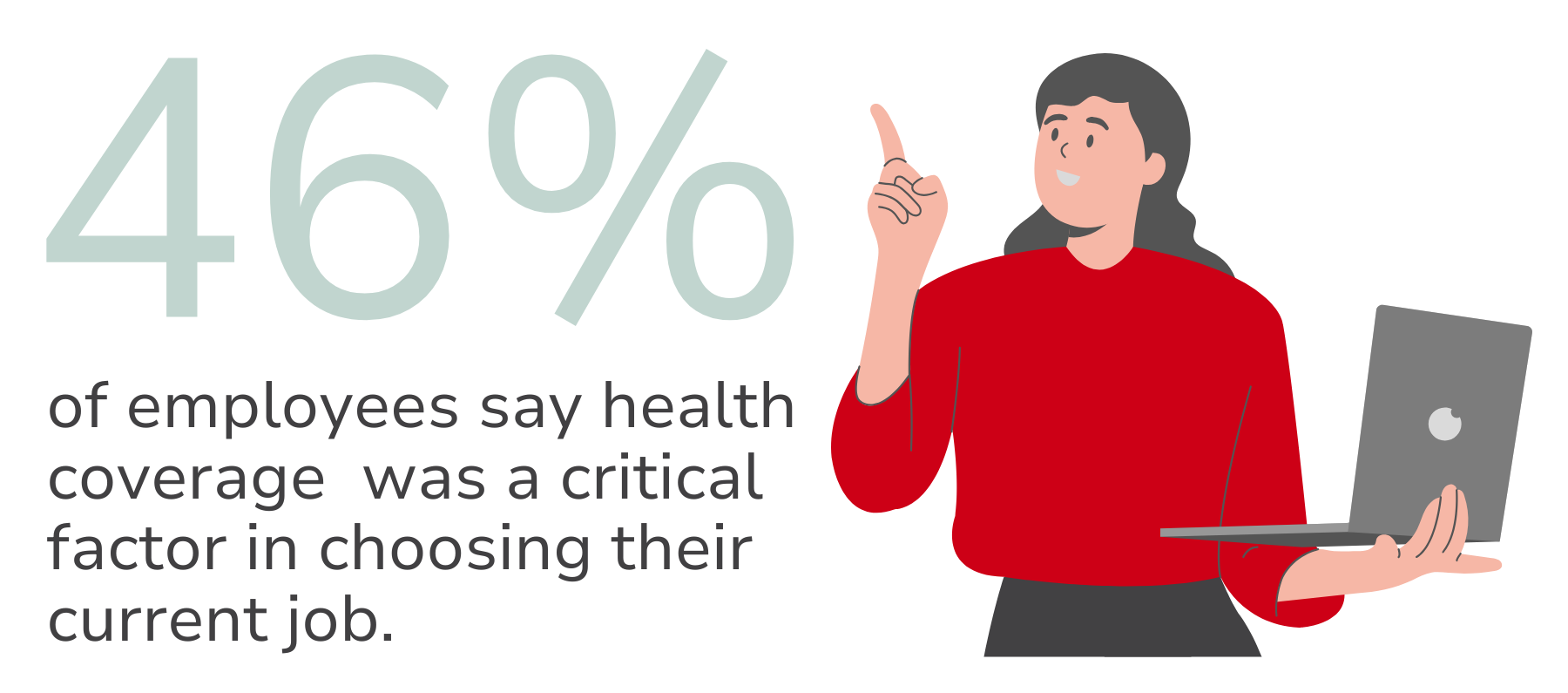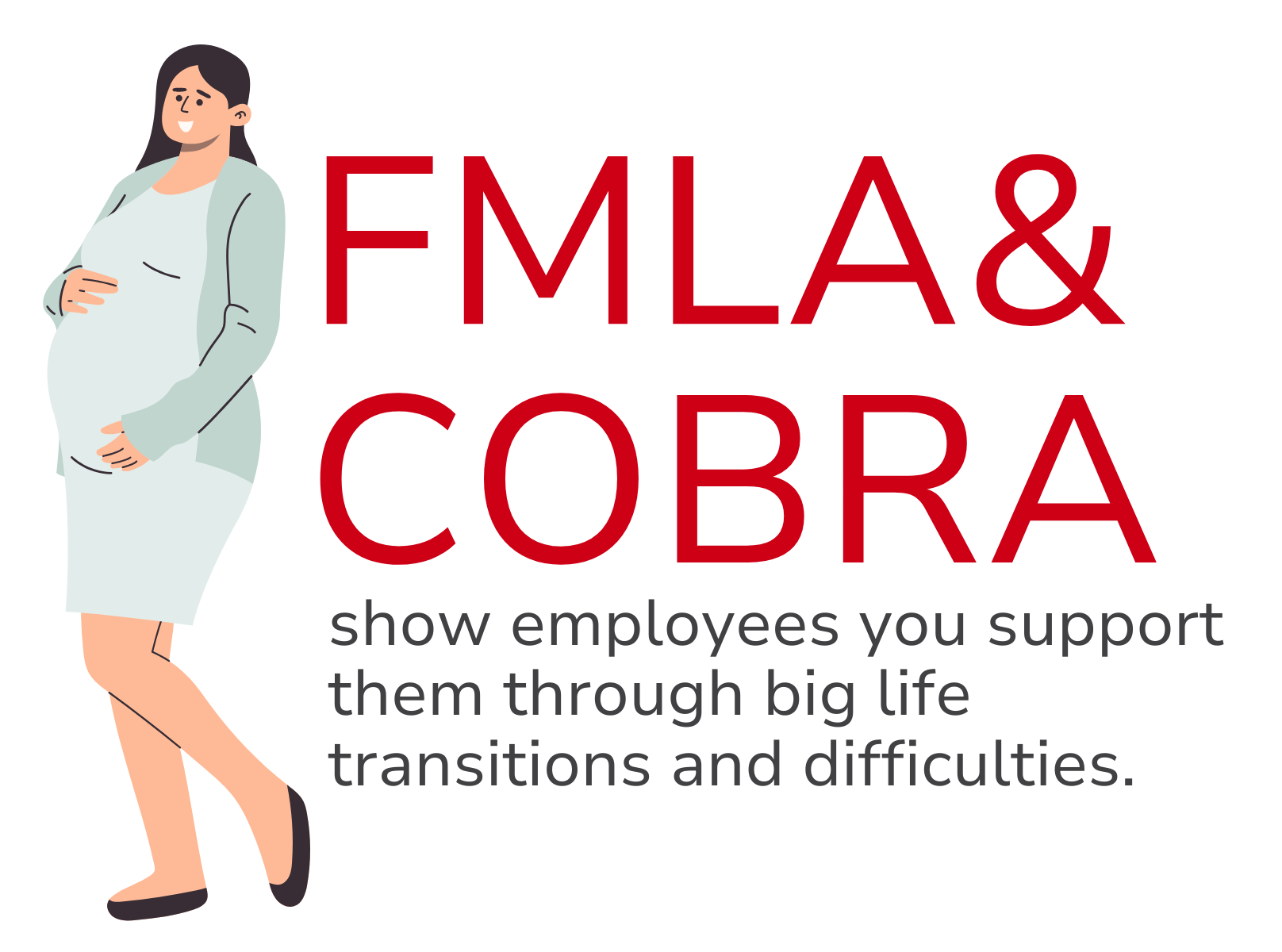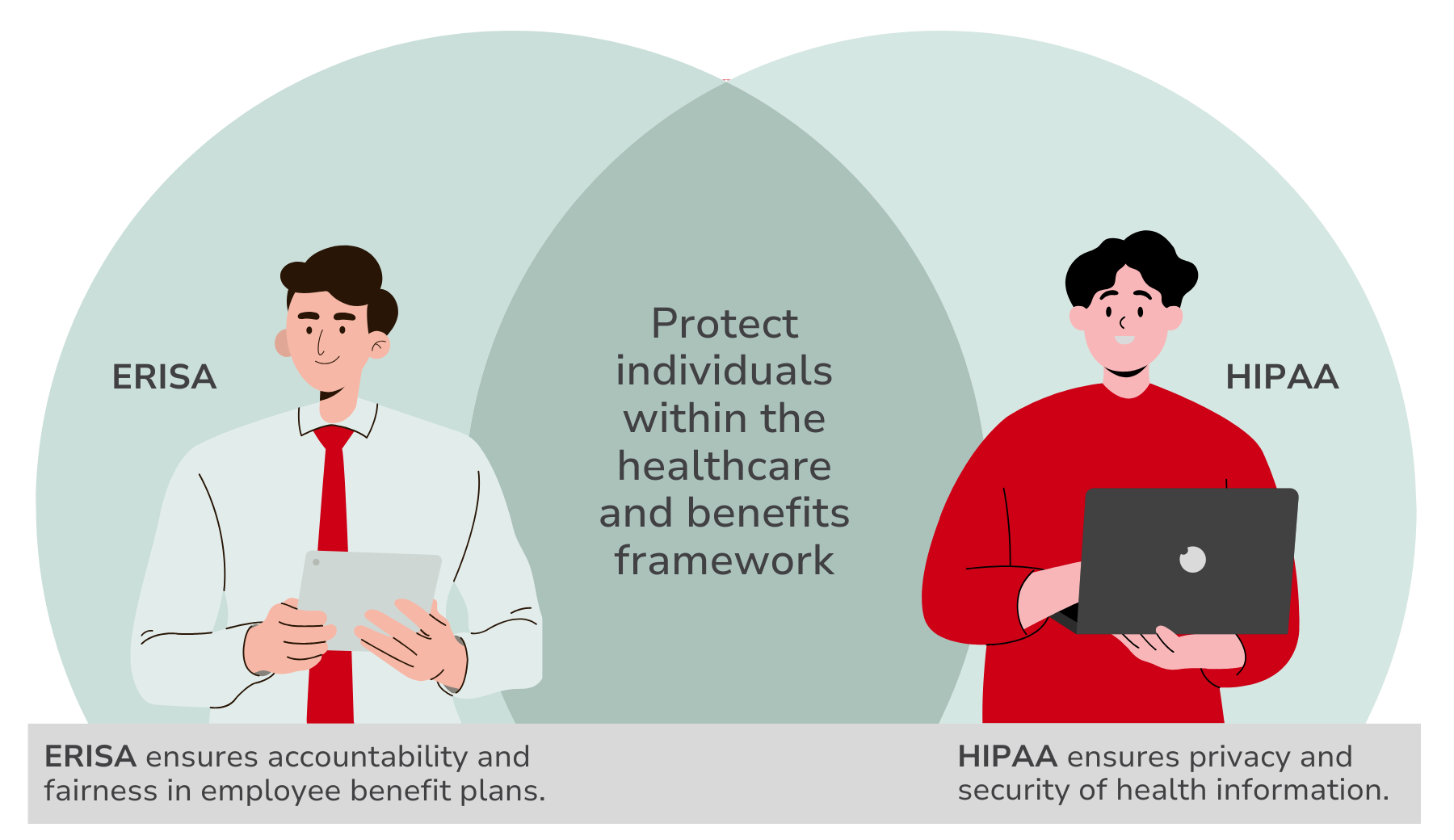5 Benefits Laws Every ALE Must Comply With
Once your business reaches 50 full-time employees, you’re officially recognized as an Applicable Large Employer (ALE) under federal law. It’s an exciting milestone that reflects your company’s growth—and it comes with new responsibilities to protect your team and your business.

In This Article
As an ALE, you are required to comply with a set of federal laws designed to protect your business and ensure employees have access to important protections and resources. Compliance is critical, but it’s not just about avoiding penalties—it’s about building trust, strengthening your workforce, and positioning your company for long-term success.
Let's take a look at five key benefits laws every ALE needs to know:
1. The Affordable Care Act (ACA)
Signed into law in 2010, the ACA expanded access to affordable healthcare and introduced new requirements for large employers.
ALE Requirements
- Offer minimum essential coverage (MEC), which includes basic plans that cover at least basic preventive services.
- Ensure the plan qualifies as a minimum value plan (MVP), which means broader care that covers at least 60% of total medical costs.
- Make sure the employee-only premium is affordable: It cannot exceed 9.96% (9.02% for 2025) of the employee’s income.
- Report coverage to the IRS: File forms 1094-C and 1095-C each year.
Penalties for Non-Compliance (2026)
If your business does not meet the ACA’s requirements, there are two potential penalties, of which you will pay one or the other.
| Penalty | Trigger | Amount |
|---|---|---|
| Penalty A | Failed to offer coverage to at least 95% of full-time employees. Or no coverage is offered. | $3,340 per full-time employee (minus the first 30 employees) |
| Penalty B | Coverage offered is not affordable or does not meet minimum value standards. | $5,010 per affected employee who receives a premium tax credit |

Why it Matters
Being compliant with the ACA helps you avoid large IRS fines, but just as important, it strengthens your ability to attract and retain top talent.
Healthcare benefits remain one of the biggest reasons employees choose (and stay) with an employer.
2. The Family and Medical Leave Act (FMLA)
Passed in 1993, FMLA protects employees who need extended time off for personal or family health reasons, without the fear of losing their job or health benefits.
ALE Requirements
- Provide up to 12 weeks of unpaid, job protected leave for qualifying reasons.
- Maintain group health benefits during leave.
- Reinstate employees to the same or an equivalent job after leave.
- Post FMLA notices and inform employees of their rights.
Who Qualifies
Employees who have worked for you for at least 12 months, 1,250 hours, and work at a location with 50+ employees
within 75 miles to qualify for FMLA. Additionally, employees who work remotely are considered main office employees and qualify for FMLA under the 50/75 rule.
Penalties for Non-Compliance
While there are no automatic fines, violations can lead to:
- Employee lawsuits seeking backpay, lost benefits, and legal fees.
- Department of Labor (DOL) investigations.
- Liquidated damages (double the amount owed if the violation is deemed willful).
Why it Matters
FMLA compliance shows employees that you support them through critical life events, from welcoming a new child to caring for a loved one. It also provides employers with a structured, legally protected way to manage extended absences fairly and consistently.
3. Consolidated Omnibus Budget Reconciliation Act (COBRA)
Enacted in 1985, COBRA gives employees and their families the option to temporarily continue health insurance after certain life events.
ALE Requirements
- Offer COBRA continuation coverage after qualifying events (i.e. termination, reduced hours, divorce, death, a dependent aging out).
- Send timely COBRA notices to employees.
- Administer coverage for 18–36 months, depending on the situation.
Who Pays
The employee usually pays the full premium plus a 2% administrative fee. While the employer is responsible for offering the continuation but not for subsidizing the cost.
Why it Matters
COBRA protects employees during vulnerable transitions while giving employers a clear process to avoid legal and IRS penalties. Handling COBRA correctly also shows employees that you support them through major life changes.

4. Employee Retirement Income Security Act (ERISA)
Passed in 1974, ERISA was created to protect employees' interests in employer-sponsored benefits plans, including health and retirement plans by setting minimum standards for the management of employer-sponsored benefits plans.
ALE Requirements
- Clearly explain the benefits offered by
- Maintaining a written plan document outlining plan rules.
- Providing a Summary of Benefits Coverage (SBC) to employees.
- Providing a Summary Plan Description (SPD) to employees.
- Disclose plan changes or important notices in a timely manner.
- Act as a fiduciary
- Always act in employees' best interest when managing the plan.
- Create a fair and transparent claims and appeals process.
Potential Penalties
| Penalty | Amount | ERISA Section |
|---|---|---|
| Failure to provide SBC | $1,433 per failure | ERISA § 715 |
| Failure to provide SPD | $110 per day | ERISA § 502(c)(1) |
| Failure to disclose information | $173-$2,167 per day (depending on information not disclosed) | ERISA § 502(c)(7) / (4) |
For more ERISA penalty information visit dol.gov or click here.
Why it Matters
ERISA ensures employees understand their benefits and have a process to challenge benefit denials. For employers, ERISA compliance minimizes the risk of Department of Labor audits and costly lawsuits while reinforcing transparency and trust in your organization.
5. Health Insurance Portability and Accountability Act (HIPAA)
Established in 1996, HIPAA sets national standards to protect sensitive health information and ensure employees can maintain health coverage between jobs.
ALE Responsibilities
PRIVACY
- Safeguard employees' Protected Health Information (PHI).
- Limit who can access or share employee health data.
- Ensures employees health details are kept confidential
SECURITY
- Protect electronic health information (ePHI) with safeguards like encryption, passwords, and secure storage.
PORTABILITY RIGHTS
- Allow employees special enrollment rights if they lose other health coverage (e.g., through a spouse’s job loss).
- Do not impose pre-existing condition exclusions.
- Provide HIPAA Privacy Notices if you self-administer any part of your health plan.
Why it Matters
HIPAA compliance protects sensitive employee data, builds trust with your workforce, and helps you avoid serious financial and reputational risks.
Note: HIPAA doesn’t prevent you from asking employees about health issues when necessary (for sick leave, accommodations, or safety) — but any health information you receive must stay confidential.

Compliance isn’t optional, it's strategic
For applicable large employers, laws like ACA, FMLA, COBRA, HIPAA, and ERISA are non-negotiable. And for smaller businesses, many similar requirements may apply at the state level — especially as your team grows. But these five laws are just the beginning.
From state-specific mandates to evolving federal guidance, your business may face additional compliance considerations tied to how you offer, administer, and manage employee benefits.That’s why it’s so important to have a trusted partner in your corner.
At Planstin, we believe compliance shouldn’t feel like a burden. When you work with a team that understands the regulations and the people behind them, you gain more than peace of mind — you gain clarity, confidence, and time to focus on growing your business.
Have questions about your company's compliance with these or other benefits laws?
Let us help you handle the details, so you can stay focused on what matters most: leading your team and building what’s next.
Explore
SUGGESTED FOR YOU




